Filter by
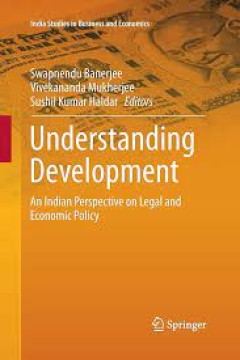
Understanding Development An Indian Perspective on Legal and Economic Policy
This book addresses topical development issues in India, ranging from land acquisition, poverty alleviation programs, labor market issues, the public-private partnership (PPP) model and fiscal federalism. It offers an Indian perspective on the dynamics of economic development and the impact the country’s legal and public policies have on it. Economic development is a dynamic concept – old p…
- Edition
- -
- ISBN/ISSN
- 978-81-322-2455-6
- Collation
- 3 b/w illustrations, 23 illustrations in colour
- Series Title
- -
- Call Number
- -

Rituals, Runaways, and the Haitian Revolution: Collective Action in the Afric…
Revolusi Haiti mungkin merupakan pemberontakan budak paling sukses dalam sejarah modern; itu menciptakan negara kulit hitam pertama dan satu-satunya yang merdeka dan merdeka di Amerika. Buku ini bercerita tentang bagaimana orang Afrika yang diperbudak yang dibawa secara paksa ke kolonial Haiti melalui perdagangan budak trans-Atlantik menggunakan warisan budaya dan agama, jaringan sosial, serta …
- Edition
- Ed. 2
- ISBN/ISSN
- 9781009256148
- Collation
- -
- Series Title
- -
- Call Number
- T 305.896 EDD r

Minimal Free Resolutions over Complete Intersections
This book introduces a theory of higher matrix factorizations for regular sequences and uses it to describe the minimal free resolutions of high syzygy modules over complete intersections. Such resolutions have attracted attention ever since the elegant construction of the minimal free resolution of the residue field by Tate in 1957. The theory extends the theory of matrix factorizations of …
- Edition
- 1
- ISBN/ISSN
- 978-3-319-26436-3
- Collation
- X, 107
- Series Title
- Lecture Notes in Mathematics
- Call Number
- -

Logic, Language, Information, and Computation: 22nd International Workshop, W…
Edited in collaboration with FoLLI, the Association of Logic, Language and Information this book constitutes the refereed proceedings of the 22nd Workshop on Logic, Language, Information and Computation, WoLLIC 2015, held in the campus of Indiana University, Bloomington, IN, USA in July 2015. The 14 contributed papers, presented together with 8 invited lectures and 4 tutorials, were carefully …
- Edition
- -
- ISBN/ISSN
- 978-3-662-47709-0
- Collation
- -
- Series Title
- -
- Call Number
- -

Failure and Damage Analysis of Advanced Materials
The papers in this volume present basic concepts and new developments in failure and damage analysis with focus on advanced materials such as composites, laminates, sandwiches and foams, and also new metallic materials. Starting from some mathematical foundations (limit surfaces, symmetry considerations, invariants) new experimental results and their analysis are shown. Finally, new concepts fo…
- Edition
- -
- ISBN/ISSN
- 978-3-7091-1835-1
- Collation
- 111 b/w illustrations
- Series Title
- -
- Call Number
- -
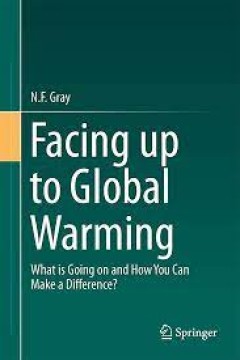
Facing Up to Global Warming What is Going on and How You Can Make a Difference?
In this volume, Professor N.F. Gray offers a comprehensive primer on climate change, sustainability, and how the two concepts are related. This book consists of fifteen chapters, each treating a specific aspect of the current global crisis, including scientific background as well as an up to date appraisal of the issue at hand. It covers the reasons behind climate change and the effect it will …
- Edition
- -
- ISBN/ISSN
- 978-3-319-20146-7
- Collation
- 28 b/w illustrations, 155 illustrations in colour
- Series Title
- -
- Call Number
- -
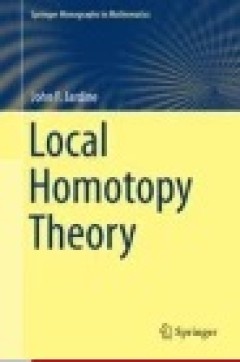
Local Homotopy Theory
This monograph on the homotopy theory of topologized diagrams of spaces and spectra gives an expert account of a subject at the foundation of motivic homotopy theory and the theory of topological modular forms in stable homotopy theory. Beginning with an introduction to the homotopy theory of simplicial sets and topos theory, the book covers core topics such as the unstable homotopy theory of …
- Edition
- -
- ISBN/ISSN
- 978-1-4939-2300-7
- Collation
- -
- Series Title
- -
- Call Number
- -
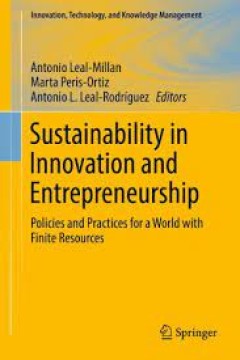
Sustainability, Innovation, and Entrepreneurship
This book is suited for the Entrepreneurship or Innovation course with an emphasis on Sustainability or for a course devoted entirely to Sustainability. What are the trends and forces underlying the changing character of the business-environment relationship? How they are creating significant entrepreneurial opportunities for individuals and companies? Around the world, the movement toward �…
- Edition
- -
- ISBN/ISSN
- -
- Collation
- -
- Series Title
- -
- Call Number
- 330 LAR s
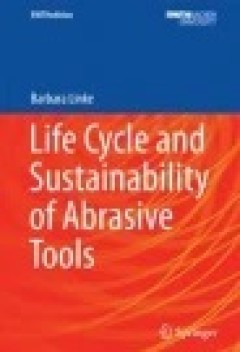
Life Cycle and Sustainability of Abrasive Tools
This monograph focuses on abrasive tools for grinding, polishing, honing, and lapping operations. The book describes the life cycle of abrasive tools from raw material processing of abrasive grits and bonding, manufacturing of monolithic or multi-layered tools, tool use to tool end-of-life. Moreover, this work highlights sustainability challenges including economic, environmental, social and te…
- Edition
- -
- ISBN/ISSN
- 978-3-319-28346-3
- Collation
- -
- Series Title
- -
- Call Number
- -
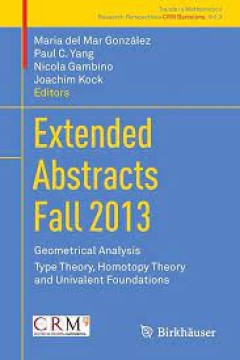
Extended Abstracts Fall 2013 Geometrical Analysis; Type Theory, Homotopy The…
The two parts of the present volume contain extended conference abstracts corresponding to selected talks given by participants at the "Conference on Geometric Analysis" (thirteen abstracts) and at the "Conference on Type Theory, Homotopy Theory and Univalent Foundations" (seven abstracts), both held at the Centre de Recerca Matemàtica (CRM) in Barcelona from July 1st to 5th, 2013, and from Se…
- Edition
- -
- ISBN/ISSN
- 978-3-319-21284-5
- Collation
- VI, 110
- Series Title
- -
- Call Number
- -
 Computer Science, Information & General Works
Computer Science, Information & General Works  Philosophy & Psychology
Philosophy & Psychology  Religion
Religion  Social Sciences
Social Sciences  Language
Language  Pure Science
Pure Science  Applied Sciences
Applied Sciences  Art & Recreation
Art & Recreation  Literature
Literature  History & Geography
History & Geography